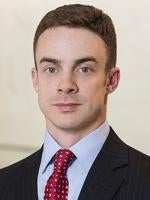Legislative Activity
Broadband-Focused Bills Introduced in House
Several Democrats on the House Energy and Commerce Committee (House Commerce Committee) have introduced bills focused on broadband. The bills are as follows:
-
H.R.1546, the Rural Wireless Act of 2017. Introduced on March 15 by Rep. David Loebsack (D-IA), the bill would require the Federal Communications Commission (FCC) to establish a methodology for collecting mobile service coverage data. The methodology would be required to contain standard definitions for different service speeds (2G, 3G, 4G LTE, and 5G) and would need to ensure that valid and reliable mobile coverage data is collected consistently, efficiently, and accurately. According to a press release from Rep. Loebsack’s website, the bill “will help make sure maps are accurate so that resources to improve wireless voice and mobile Internet services go to the areas that need it the most.” The bill has been referred to the House Commerce Committee for consideration.
-
H.R.1591, the WiFi Capable Mobile Devices Act. Introduced on March 16 by Rep. Peter Welch (D-VT), the legislation would direct the FCC to adopt rules and conduct outreach to offer recipients of assistance under the FCC’s Lifeline program mobile devices that are capable of receiving a WiFi signal and that are capable of tethering with other WiFi compatible hardware or devices. The bill has been referred to the House Commerce Committee.
-
H.R.1581, the Tribal Digital Access Act. Introduced on March 16 by Rep. Raul Ruiz (D-CA), the bill focuses on expanding broadband to tribal lands. Specifically, it would amend the Communications Act to add access to telecommunications and information services on tribal lands and areas with large tribal populations to section 254(b)(3) of the Communications Act, which sets out principles for universal service access in rural and high-cost areas. The bill has been referred to the House Commerce Committee.
-
H.R.1534, the 21st Century Worker Opportunity Act. Introduced on March 15 by Rep. Debbie Dingell (D-MI), the bill proposes to establish a program that would provide dislocated workers with a subsidy or coupon that may be applied towards obtaining broadband service or for remote job training in a profession that is not likely to be automated in the next 20 years. The program would be administered by the National Telecommunications and Information Administration. Coupons would be limited to one per household and applicants would have to submit a certification from an employer to the effect that the applicant had been employed in the manufacturing sector and was laid off or terminated due to automation of the position. The bill has been referred to the House Commerce Committee.
These bills come ahead of a March 21 hearing (noted below) of the House Commerce Committee’s Subcommittee on Communications and Technology relating to broadband infrastructure.
Broadband Bill Introduced in Senate
On March 15, Sen. Amy Klobuchar (D-MN) introduced S.646, the Measuring the Economic Impact of Broadband Act. The bill would require the Secretary of Commerce, acting through the Director of the Bureau of Economic Analysis, which is part of the U.S. Department of Commerce, to conduct a study on the effects of broadband deployment and adoption on the economy. A press release from Sen. Klobuchar noted that “[w]hile the federal government measures the economic impact of many industries, it does not produce current, reliable statistics on the economic impact of broadband on the U.S. economy.” The press release further noted that clear and reliable data concerning the economic impact of broadband would be a “valuable” tool for policymakers and that the analysis to be conducted by the Secretary of Commerce would consider “job creation, business headcount, online commerce, income education and distance learning, telehealth, telework, agriculture, population growth, population density, broadband speed, and geography.” The bill has been referred to the Senate Committee on Commerce, Science, & Transportation (Senate Commerce Committee).
This Week’s Hearings:
-
Tuesday, March 21: The Subcommittee on Communications and Technology of the House Commerce Committee will hold a hearing titled “Broadband: Deploying America’s 21st Century Infrastructure.” The witnesses will be announced.
-
Wednesday, March 22: The Senate Commerce Committee will hold a hearing titled “The Promises and Perils of Emerging Technologies for Cybersecurity.” The witnesses include Caleb Barlow, Vice President, Threat Intelligence, IBM Security; Venky Ganesan, Chair, National Venture Capital Association and Partner, Menlo Ventures; Steve Grobman, Chief Technology Officer and Intel Fellow, Intel Security; and Malcolm Harkins, Chief Security and Trust Officer, Cylance Corporation.
Regulatory Activity
FCC Releases Agenda for March 23 Open Commission Meeting
The FCC has announced the following agenda items will be considered at the agency’s Open Commission Meeting on March 23.
-
Advanced Methods to Target and Eliminate Unlawful Robocalls. The FCC will consider a Notice of Proposed Rulemaking and Notice of Inquiry “that would enable voice service providers to better protect subscribers from illegal and fraudulent robocalls.”
-
Promoting Technological Solutions to Combat Contraband Wireless Device Use in Correctional Facilities. The FCC will consider a Report and Order and Further Notice of Proposed Rulemaking “that would adopt rules to facilitate the deployment of technologies used to combat contraband wireless devices in correctional facilities, while seeking comment on additional proposals and solutions.”
-
Structure and Practices of the Video Relay Services Program et al. The FCC will consider a Report and Order, Notice of Inquiry, Further Notice of Proposed Rulemaking, and Order “that would enhance service quality and propose a new provider compensation plan for video relay services.”
-
Amendment of Parts 1 and 22 of the Commission’s Rules with Regard to the Cellular Service, Including Changes in Licensing of Unserved Area et al. The FCC will consider a Second Report and Order, Report and Order, and Second Further Notice of Proposed Rulemaking “that would facilitate mobile broadband deployment, including LTE, promote greater spectrum efficiency, and reduce regulatory burdens and costs.”
-
Section 43.62 Reporting Requirements for U.S. Providers of International Services et al. The FCC will consider a Notice of Proposed Rulemaking “that proposes to (1) eliminate the Traffic and Revenue Reports and (2) streamline the Circuit Capacity Reports.”
-
Channel Sharing by Full Power and Class A Stations Outside the Broadcast Television Spectrum Incentive Auction Context et al. The FCC will consider a Report and Order “that would authorize channel sharing outside the context of the incentive auction and thus permit stations with auction-related channel sharing agreements to continue to operate if their auction-related agreements expire or otherwise terminate.”
Consistent with Chairman Pai’s pilot program, which is intended to increase transparency, the FCC has released draft versions of the items, which are available here.
The Commissioners will also receive “an update from the Public Safety & Homeland Security Bureau on the status of its continuing inquiry into the AT&T Mobility 911 outage that occurred on March 8, 2017,” and will consider three media items as part of a consent agenda.
The FCC’s Open Commission Meeting will be held on March 23 at 10:30 a.m. in the Commission Meeting Room at the FCC’s headquarters at 445 12th Street S.W., Washington, D.C. 20554, and will be streamed live at fcc.gov/live.





 />i
/>i

